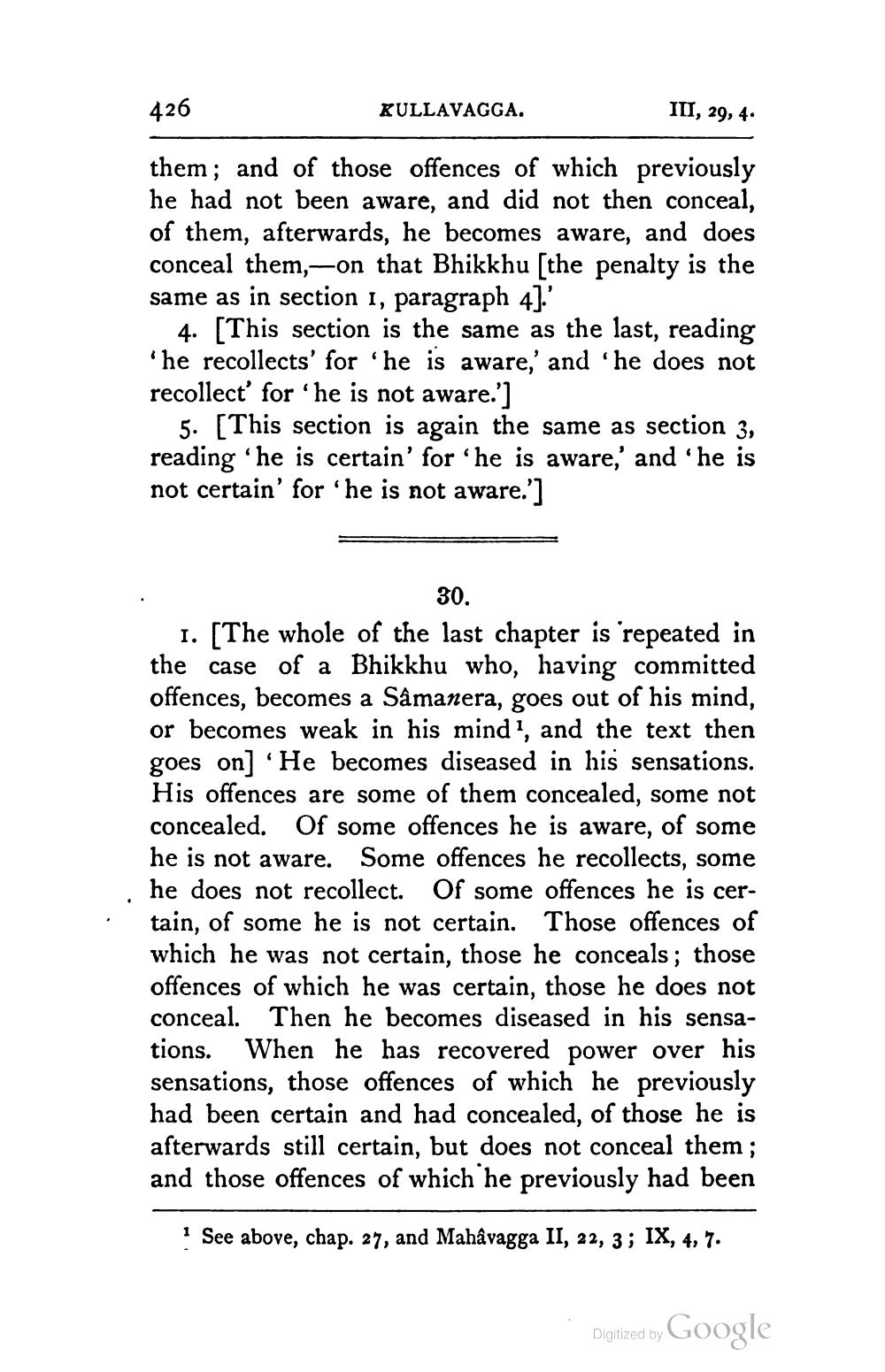________________
426
KULLAVAGGA.
III, 29, 4.
them; and of those offences of which previously he had not been aware, and did not then conceal, of them, afterwards, he becomes aware, and does conceal them,-on that Bhikkhu [the penalty is the same as in section 1, paragraph 4].'
4. [This section is the same as the last, reading 'he recollects' for 'he is aware,' and 'he does not recollect' for 'he is not aware.']
5. [This section is again the same as section 3, reading “he is certain' for 'he is aware,' and 'he is not certain' for 'he is not aware.']
30.
1. [The whole of the last chapter is repeated in the case of a Bhikkhu who, having committed offences, becomes a Sâmanera, goes out of his mind, or becomes weak in his mind, and the text then goes on] 'He becomes diseased in his sensations. His offences are some of them concealed, some not concealed. Of some offences he is aware, of some he is not aware. Some offences he recollects, some he does not recollect. Of some offences he is certain, of some he is not certain. Those offences of which he was not certain, those he conceals; those offences of which he was certain, those he does not conceal. Then he becomes diseased in his sensations. When he has recovered power over his sensations, those offences of which he previously had been certain and had concealed, of those he is afterwards still certain, but does not conceal them; and those offences of which he previously had been
See above, chap. 27, and Mahavagga II, 22, 3 ; IX, 4, 7.
Digitized by Google
Digitized by




